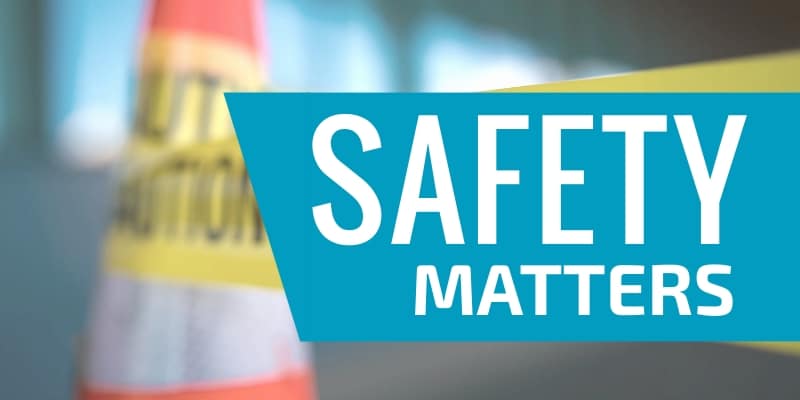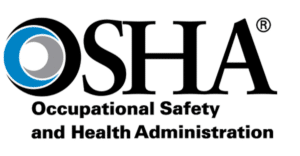24 Oct OSHA Eases Enforcement Of Powered Air-Purifying Respirator Fit-Testing
 On Oct. 2, 2020, The U.S. Occupational Safety And Health Administration (OSHA) Issued Temporary Guidance For Compliance Safety And Health Officers (CHSOs), Easing Enforcement Of Fit-Testing Requirements Under The Respiratory Protection Standard For The Use Of Tight-Fitting Powered Air Purifying Respirators (PAPRs).
On Oct. 2, 2020, The U.S. Occupational Safety And Health Administration (OSHA) Issued Temporary Guidance For Compliance Safety And Health Officers (CHSOs), Easing Enforcement Of Fit-Testing Requirements Under The Respiratory Protection Standard For The Use Of Tight-Fitting Powered Air Purifying Respirators (PAPRs).
This enforcement guidance is significant because it applies to the shortage of N95 filtering face piece respirators (FFRs) and fit-testing supplies caused by the current COVID-19 pandemic.
OSHA is currently allowing employers to use PAPRs approved for protection by the National Institute for Occupational Safety and Health (NIOSH) when N95 respirators are not available. 16 Oct Combating Workplace Safety Complacency
 It’s vital for employees to feel comfortable in their job role and capable of performing workplace tasks effectively. However, comfort shouldn’t come at the cost of complacency.
It’s vital for employees to feel comfortable in their job role and capable of performing workplace tasks effectively. However, comfort shouldn’t come at the cost of complacency.
Being complacent on the job and ignoring safety hazards can carry significant consequences in the workplace—such as near-miss incidents, injuries and even fatalities. After all, just because your workplace is safe, doesn’t mean you don’t have to follow proper precautions. In fact, many safety incidents aren’t caused by unsafe conditions, but rather by careless acts or behaviors.
That’s why it’s crucial for you to play your part in combating complacency, keeping both yourself and others safe at work. Review this guidance to understand what workplace safety complacency is and how to prevent it.
09 Oct Preparing for an OSHA Inspection
 The Occupational Safety and Health Administration (OSHA) is the government agency that monitors and enforces compliance with workplace safety laws.
The Occupational Safety and Health Administration (OSHA) is the government agency that monitors and enforces compliance with workplace safety laws.
Under the Occupational Safety and Health Act, Compliance Safety and Health Officers (CSHOs) have the authority to inspect the facilities of any employer subject to OSHA’s regulations. Employers have a right to request a warrant for inspection. Although it may buy time, it will likely broaden the inspection and give the CSHO a negative impression.
02 Oct FMCSA Revised Hours of Service Regulations Started Sept. 29
 The Federal Motor Carrier Safety Administration’s (FMCSA) Hours of Service final rule became effective Sept. 29, 2020. The final rule revised the previous regulations on hours of service and affect the sleeper berth provision, adverse driving exception, short-haul exception and the 30-minute break rule.
The Federal Motor Carrier Safety Administration’s (FMCSA) Hours of Service final rule became effective Sept. 29, 2020. The final rule revised the previous regulations on hours of service and affect the sleeper berth provision, adverse driving exception, short-haul exception and the 30-minute break rule.
The FMCSA says it believes these changes will provide more flexibility and allow for more productivity while ensuring safety.
09 Sep OSHA Safety Cornerstone – Third Quarter 2020

OSHA Safety Cornerstone - Third Quarter 2020
OSHA Reveals Increase in Whistleblower Complaints in the Midst of COVID-19
As the COVID-19 pandemic continues on, employee health and safety remains a top priority. Specifically, a key topic of concern has been whether workers who reported potential violations (e.g., a lack of social distancing or inadequate personal protective equipment) are being properly protected from employer retaliation.


 Alternative Fuels Are Being Used More Today To Fuel Commercial Fleets. Compared To Using Other Types Of Fuel, Using Alternative Fuels Such As Compressed Natural Gas (CNG) And Liquified Natural Gas (LNG) Has Great Benefits For Employers. Some Of These Benefits Include Fewer Emissions, Reduced Operating Costs And Price Stability.
Alternative Fuels Are Being Used More Today To Fuel Commercial Fleets. Compared To Using Other Types Of Fuel, Using Alternative Fuels Such As Compressed Natural Gas (CNG) And Liquified Natural Gas (LNG) Has Great Benefits For Employers. Some Of These Benefits Include Fewer Emissions, Reduced Operating Costs And Price Stability.